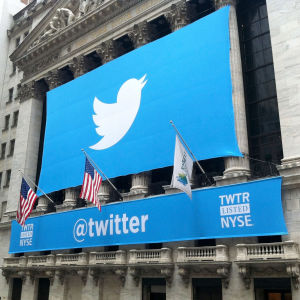Can a private corporation limit the First Amendment rights of its customers and employees? Most people when asked this question would answer: no. However, per the nature of legal precedence and the supremacy of the First Amendment, free speech protections aren’t guaranteed in private settings.
Considering a recent row, social media giant Twitter has banned Alex Jones, the controversial right-wing conspiracy theorist, from using its platform. Ironically, Jones was on Capitol Hill at the same time as Twitter CEO Jack Dorsey. Dorsey was testifying to the Senate Intelligence Committee on user privacy issues. CNBC reported that Dorsey took the step to ban Alex Jones from the platform due to a live-streamed video of the commentator berating a CNN reporter, among other controversial posts. Not to mention, Reuters reporters filmed Jones harassing Sen. Marco Rubio of Florida during a press gaggle not too long ago.
This action serves as Twitter’s latest jab at restricting the controversial figure, and others like him, from using the social platform to propagate messages of hate. In response, Jones and his followers — backed by a growing number of conservatives — have criticized the tech giant for limiting his First Amendment rights. The Jones-Twitter row also coincides with Trump administration officials signaling moves to regulate significant tech companies such as Twitter, Facebook and Google for so-called institutional bias against conservative figures, media outlets and the presidency.
Regardless of where you stand on this particular issue, the fact that remains is that Twitter, as a private corporation, has the right to deny people access to its platform. Twitter justified the removal of Jones and his Infowars outlet as an action to address violations of the company’s safe environment policies.
“We took this action based on new reports of Tweets and videos posted yesterday that violate our abusive behavior policy, in addition to the account’s past violations,” the company said. According to Twitter’s abusive behavior policy, the company maintains the right to “prohibit behavior that crosses the line into abuse, including behavior that harasses, intimidates or uses fear to silence another user’s voice.”
Based on Twitter’s rights as a corporation and the doctrine of freedom of association, the move to ban Jones isn’t illegal. Federal positive law grants private businesses, like Twitter, the ability to deny service to customers on the grounds of safety and supporting the well-being of employees and other customers. Companies are restricted from discriminating against people of a protected class under federal law, barring adjustments to this doctrine from recent Supreme Court findings.
From an economic standpoint, Twitter acted in a self-regulatory capacity to end Jones’ use of the platform for life. In the midst of rising demands from the right-wing to regulate tech companies, Twitter’s actions should be viewed as an act in standing up for its corporate culture. Tech companies, in general, advocate for self-regulation and champion the causes of creating life-changing innovations.
At the end of the day, Twitter is a private corporation. It is not the government. The First Amendment protects American citizens from government censorship and expressive control. These protections also prevent governmental tyranny.
For the right-wing groups who intend to make a martyr out of Jones because of this incident, they’re advocating for bigger government, real limitations on constitutional rights, and regulation of proud American companies.
Milton Friedman said it best when he posed the question: “How can we keep the government we create from becoming a Frankenstein that will destroy the very freedom we establish it to protect?”
Twitter and the tech industry are not this “Frankenstein” as these ideologues so often argue. Companies like Twitter comprise people who want to protect the integrity of their product. There is nothing wrong with that.

